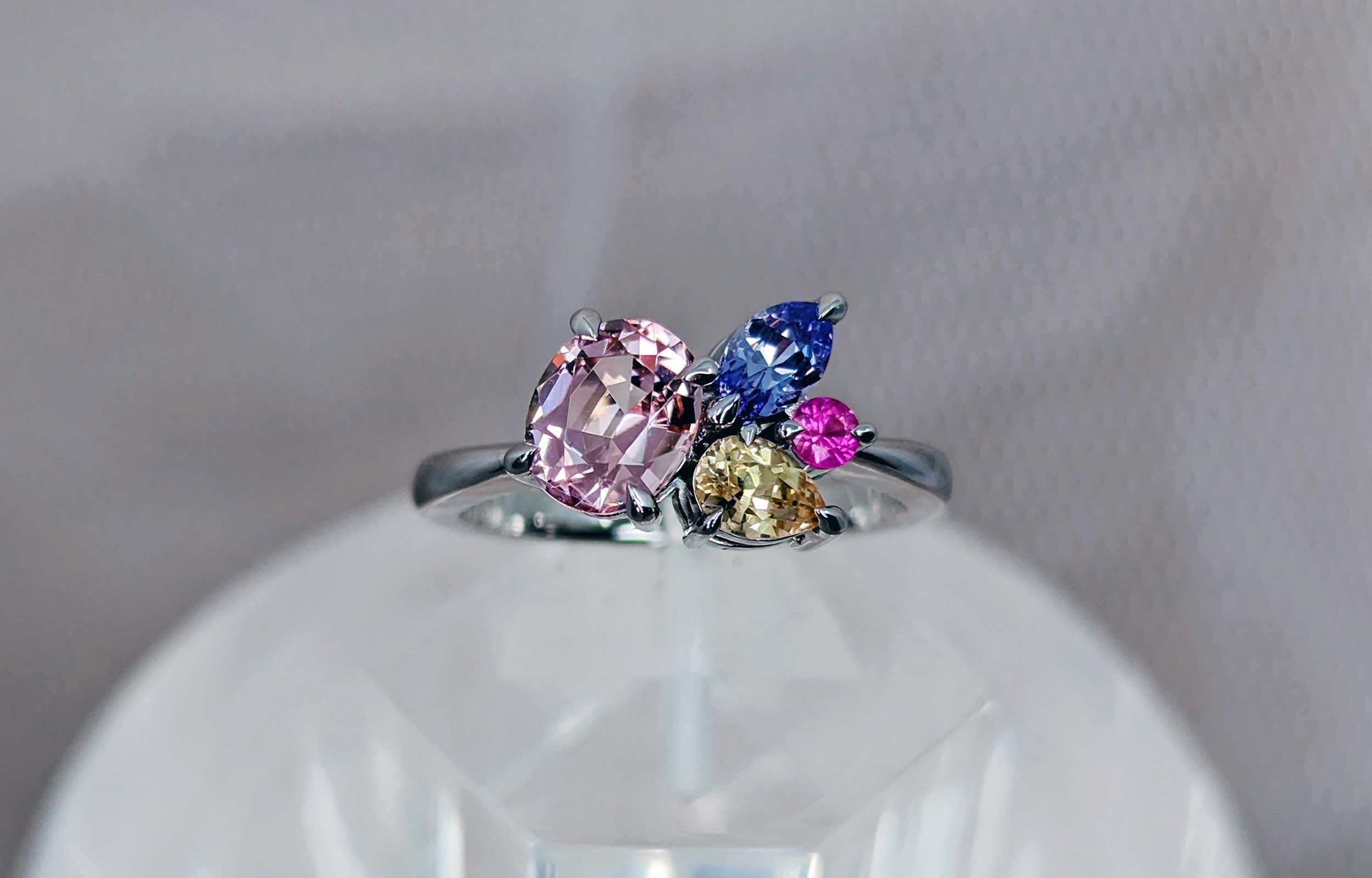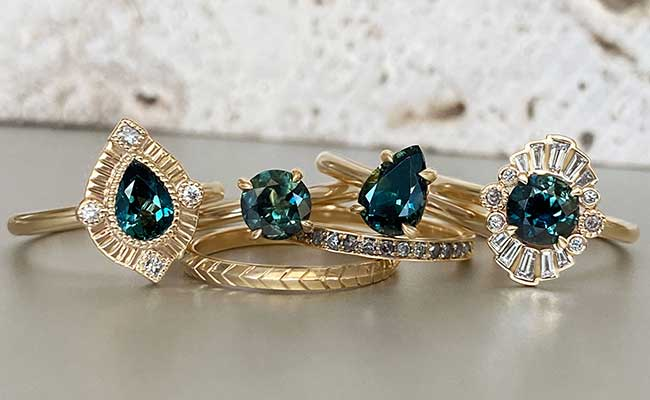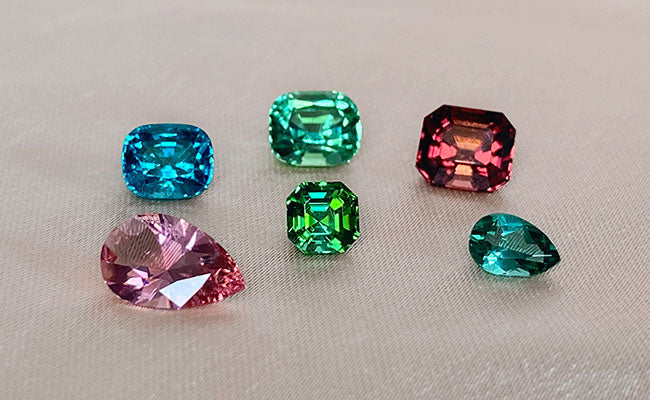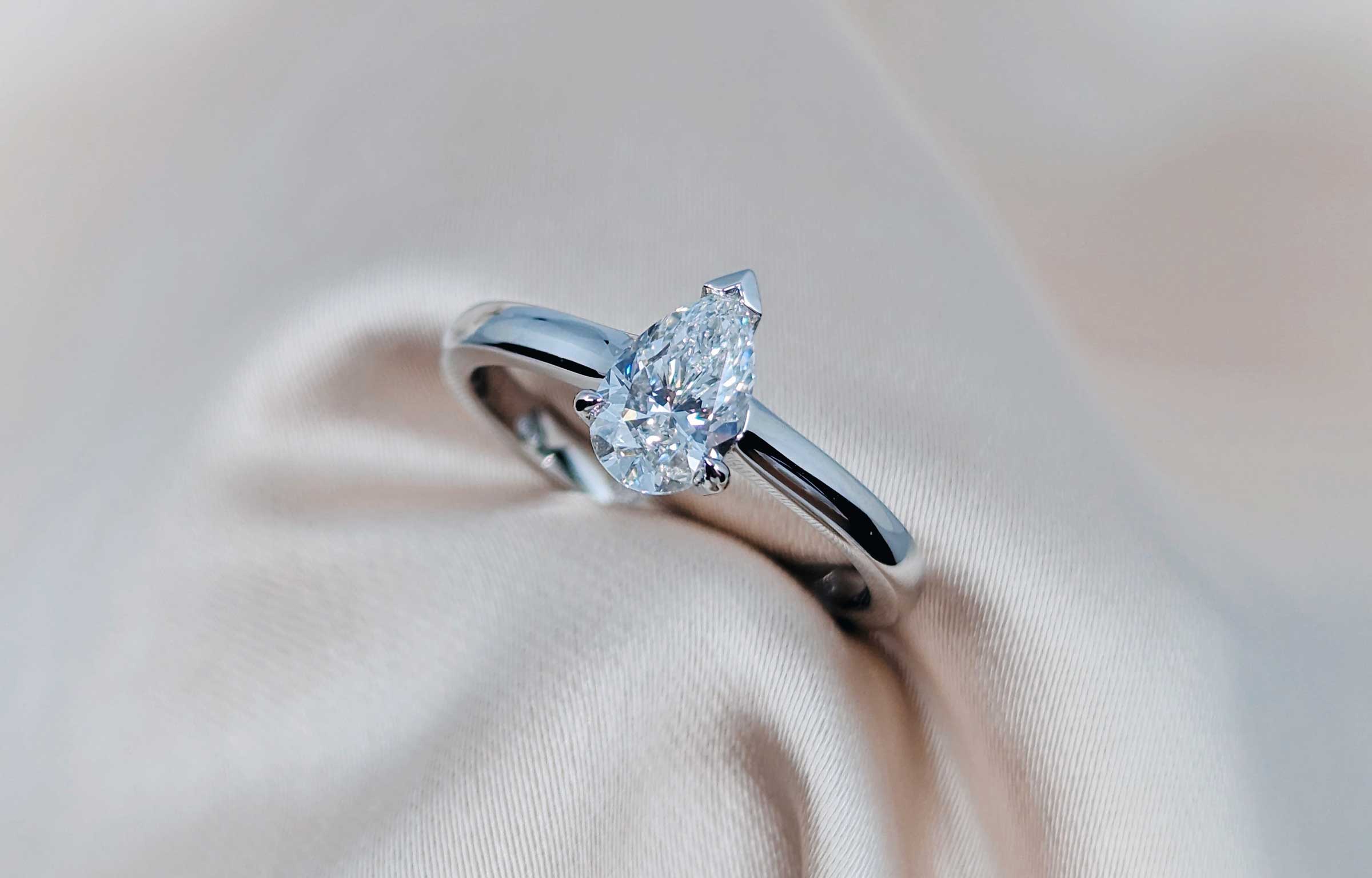
9ct vs 18ct gold: Which is right for your ring?
Beyond purity or price, what’s the real difference between 9ct and 18ct gold (or 9k and 18k gold if you’re outside of Australia)? And which will feel right for you years from now?
If you’re comparing the two, you’re probably trying to make the right decision, not just the expected one. As custom jewellers with over a decade of experience, we guide people just like you through this choice every day - particularly when it comes to engagement rings and milestone pieces.
Here’s what actually matters, so you can choose the right type of gold with confidence.
Slick marketing will tell you that the more expensive the piece, the more luxurious it is. Many assume that 18ct gold is better due to its higher price and perceived exclusivity. It can be - but just like in life - there are other factors to consider.
Like quick answers?
Learn all you need to know in minutes. We’ve laid out our professional opinion on the six most common gold jewellery questions below.
Enjoy detail?
Read further for an in-depth comparison on the difference between 9ct and 18ct gold.
Need help choosing?
Book a complimentary consult and we'll guide you through the top questions to ask when designing custom jewellery.
Sunrise Halo ring, available in 9ct and 18ct rose, white and yellow gold
What is the difference between 9ct gold and 18ct gold?
The primary difference is the precious metal content. 9ct gold contains 37.5% pure gold while 18ct gold contains double the amount, at 75% pure gold.
The remainder consists of various metals, which may include copper, zinc, silver, palladium or platinum, depending on whether it’s a yellow, rose or white gold piece.
Due to its higher gold content, an 18ct gold piece will generally be more expensive than an equivalent 9ct gold piece.
If cost is a primary concern, check out these clever ways to keep your engagement ring on budget.
9ct vs 18ct gold - which one is better?
In general, and all factors equal, 18ct gold is the longer lasting, more durable choice. However 9ct gold can still be a suitable option for some. This is what we tend to recommend.
Choose 18ct gold if:
- You're looking for a piece that is worn frequently and needs to last as long as possible, like a gold engagement ring, wedding band or heirloom piece, and
- It fits into your budget
Choose 9ct gold if:
- You're looking for something in a lower price bracket, and
- You're after a piece that isn’t worn as regularly, like a dress ring or fashion jewellery
14ct gold is also an option to consider, sitting in between 18ct and 9ct gold when it comes to durability and pricing.
Outside of the purity of the metal, there are other factors that can influence the durability of gold jewellery. Metal that has been hardened by being compressed and shaped during the handmaking process is likely to last longer than metal that has been cast into its final shape, whether it’s made in 9ct or 18ct gold.
Need help choosing? Book a complimentary consult and we'll guide you through the top questions to ask yourself when designing a ring.

Check out the Design Gallery for more gold jewellery inspiration
Is 18ct gold more expensive?
All factors equal, 18ct gold jewellery is more expensive than 9ct gold jewellery. 18ct gold's greater purity gives it a higher value, richer gold colour and more resistance to attack from chemicals in the environment.
Does 9ct gold tarnish?
Yes, 9ct gold can tarnish. However it doesn’t tarnish as obviously as sterling silver can. You may not notice it until you compare your 9ct gold jewellery to a brand new, freshly polished piece, and see that the surface looks duller. Wiping with a jewellery polishing cloth will help remove tarnish and bring back the original colour. Shop our eco-friendly jewellery cleaner to keep your rings sparkling clean.
You'll likely notice tarnish more on 9ct rose gold (due to the higher copper content) and less on white gold. White gold is usually plated with a fine layer of rhodium (a platinum group metal) which doesn’t tarnish.
Generally, the higher the gold content, the less likely it is that your jewellery will tarnish.
 Is 9ct gold harder than 18ct gold?
Is 9ct gold harder than 18ct gold?
Technically yes, 9ct gold is harder than 18ct gold. However hardness is not the same as durability.
9ct gold is more brittle than 18ct gold. This can translate to broken claws, cracks in the metal and general weakness as the non-gold metals in the alloy are broken down by chemicals in the environment over time.
Proper care will prolong the life of your gold jewellery. Take pieces off when you exercise, swim or work with your hands and avoid exposing them to chemicals such as chlorine and bleach. To clean fingerprints off the metal, wipe gently with a soft jewellery polishing cloth.
Is it ok to wear 9ct gold rings?
Yes! If you've considered the differences, treat your jewellery with care and if it means you can have the piece you want within your budget, wear 9ct gold. Our recommendation is always to make an educated decision based on what’s best for you.
At our Sydney workshop, we happily make custom jewellery and engagement rings in 9ct, 14ct, 18ct and 22ct gold after explaining the differences between gold purities. We also have both 9ct and 18ct gold jewellery in the shop, so we can offer a range of price points to suit different budgets.

An in-depth comparison between 9ct gold and 18ct gold
Now that you’ve got the cliff notes, let’s get technical. Here's a more in depth rundown on the characteristics of 9ct gold and 18ct gold.
There are three factors to consider:
- Durability: How much wear does your jewellery get and how long does it need to last?
- Cost: What is your budget?
- Appearance: What do you want your metal to look like?
As you already know, the most common types of gold you’ll find in Australia are 18ct and 9ct gold. Other countries may use different purities such as 10ct, 14ct and 22ct.
Carat (ct), often referred to as karat (k) in the US, indicates the purity of the metal. Pure gold (24ct) is generally too soft to use in jewellery and is alloyed with other metals to increase its hardness.
- 9ct gold is 37.5% pure gold
- 10ct gold is 41.6% pure gold
- 14ct gold is 58.3% pure gold
- 18ct gold is 75% pure gold
- 22ct gold is 91.6% pure gold
Shop the Mille Ellipse ring in rose gold
Durability
A common question when comparing 9ct and 18ct gold is, “which one is most durable”?
Durability matters because your ring isn’t just a ring for today. It’s a piece that needs to last through daily wear, milestone anniversaries and decades of memories. Choosing a material that holds up means peace of mind that you won’t have to replace or repair it prematurely.
While 9ct gold is technically harder than 18ct gold, it can be more brittle and less resistant to knocks and scratches on a microscopic scale. All factors equal, an 18ct gold ring will hold up to everyday wear better than a 9ct gold ring when compared over a long period of time.
Resistance to tarnishing and corrosion is another factor to consider. Remember high school chemistry class? You may have heard of pure gold referred to as a “noble” metal, which is resistant to attack from chemicals, acids and the environment. Pure gold does not corrode or tarnish, but the other metals used to make gold alloys can.
18ct gold, for example, contains 75% pure gold and 25% other metals, while 9ct gold contains 37.5% pure gold and 62.5% other metals. Because it has a significantly higher proportion of pure gold, 18ct gold is more resistant to tarnishing and corrosion than 9ct gold.
If you’re weighing up 9ct vs 18ct for your engagement or wedding ring, take a look at how we design custom rings in both metals.

Cost
Price is often where overwhelm kicks in. Do you save now with 9ct, or invest long term with 18ct? The real question is what works for you, your budget and your preferences? Here's how to make an educated decision.
With double the pure gold content, 18ct gold jewellery is generally higher in price than 9ct gold jewellery. If cost is a determining factor, 9ct gold can be a good option (after weighing up the other factors listed in this guide). Made well, a 9ct gold ring can be built to last - however it won't last as long as 18ct gold.
If you choose white gold, remember that a fine layer of rhodium (a platinum group metal) is often applied to 9ct, 14ct and 18ct white gold to give it a bright white finish. This rhodium layer wears off over time and can be reapplied to maintain its original finish. This is of course optional, but if you choose to replate your white gold jewellery, you may want to factor this into the cost of your ring over its lifetime.
Platinum is another option to consider if you’re looking for a durable white metal. Find out the difference between platinum and white gold.
Price is important, but so is making sure your ring lasts a lifetime. We've helped hundreds of couples choose between 9ct and 18ct for their custom engagement rings. Book a complimentary consult and we'll help you work out what's best for yours.
Appearance
In general, the more pure gold there is in a ring, the warmer the yellow hue. 18ct gold rings have a richer, yellower tone than 9ct gold rings in both yellow and rose gold. White golds often contain silver, palladium and/or platinum (depending on the alloy) to offset the natural yellow colour. White gold alloys without palladium or platinum are generally warmer in colour than those with palladium or platinum.
While this is a general rule, different alloys from different manufacturers may show slight colour differences depending on how they're made.
Not sure which gold is right for your ring? Book a chat and we'll guide you through how we design in 9ct, 18ct and 22ct gold, or shop ready-to-order 9ct and 18ct gold jewellery.
The verdict - 9ct gold or 18ct gold?
If your budget allows, and if you’re looking for a long-lasting piece with heirloom potential, go for 18ct gold. If you're after a lower price point, 9ct gold may be an appropriate choice.
Sneaky tip: If cost is a primary concern, check out these clever ways to keep your engagement ring on budget.
Is 18ct gold still the best choice in 2025?
Gold prices surged dramatically in 2024, reaching record highs and showing no signs of slowing down in 2025. The tables have turned, and platinum, once the most expensive metal, is now often the best value for money in the world of fine jewellery.
9ct white gold currently remains the most affordable white metal (other than sterling silver). However, 14ct and 18ct white gold jewellery no longer offer the pricing benefits they once did. In our workshop, we now rarely make pieces in 14ct or 18ct white gold. Instead, platinum has taken the spotlight as our go-to precious metal.
Here's our recommendation: If you're considering a rose or yellow gold piece, 9ct, 14ct and 18ct gold are still viable choices, depending on your budget. However, if you're leaning towards a white metal, platinum offers superior value, with its durability and naturally white colour making it the more practical option in today’s market.
Here’s how to decide whether platinum or white gold is the right choice for you.
Shop the Adrift Drop earrings in Australian sapphires and solid gold
So, is 9ct or 18ct gold best for you?
Whether you’re leaning towards 9ct, 18ct or are still undecided, you don’t have to figure it out alone. That's where we come in.
We'll guide you through the options so you feel certain you’ve made the right call. That kind of confidence is essential when creating a piece that will be part of your life for decades.
Send an email or book your complimentary custom jewellery consult. We’ll help you choose the gold that feels right for you, so you never have to second-guess whether you've nailed it.









